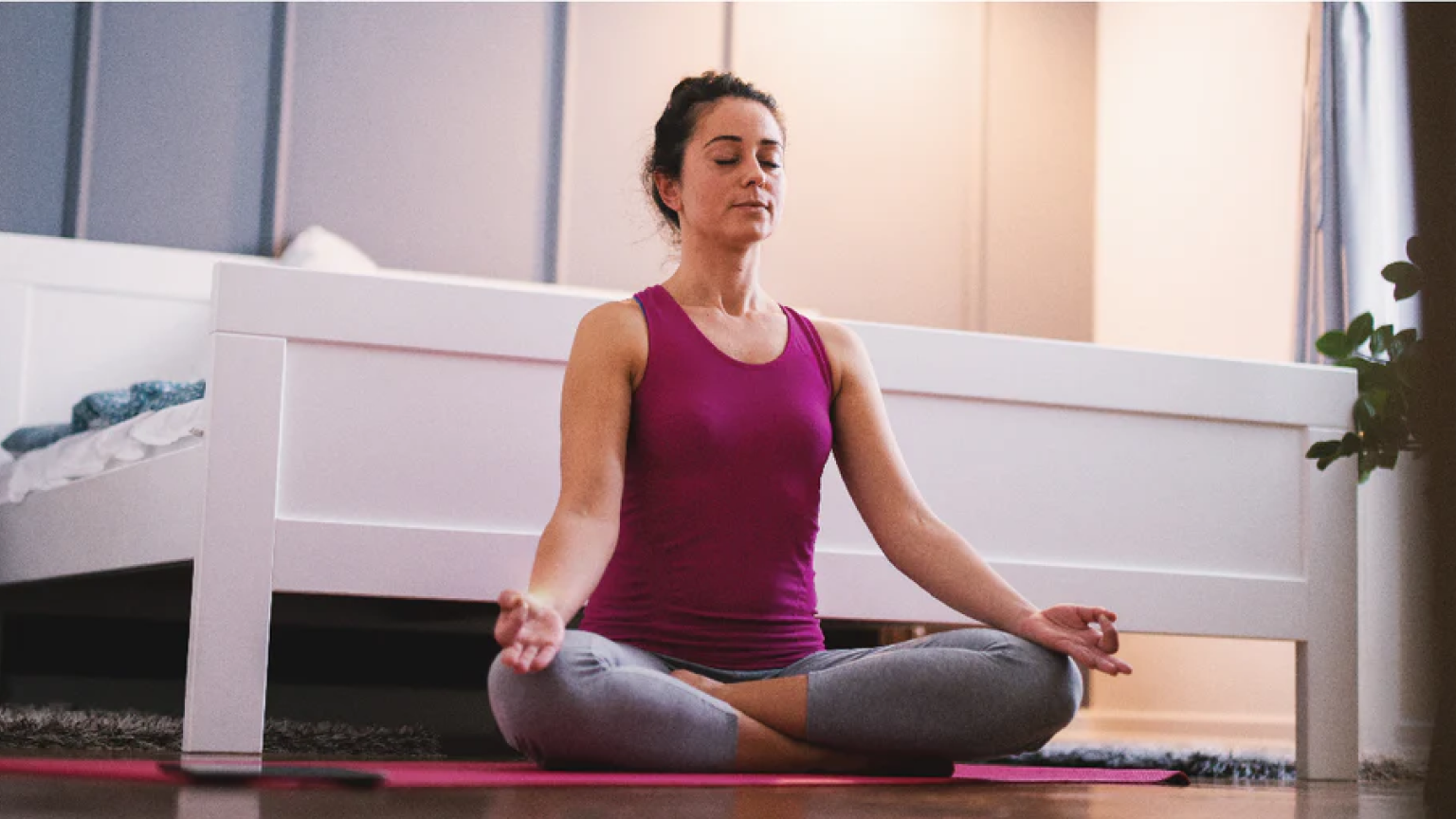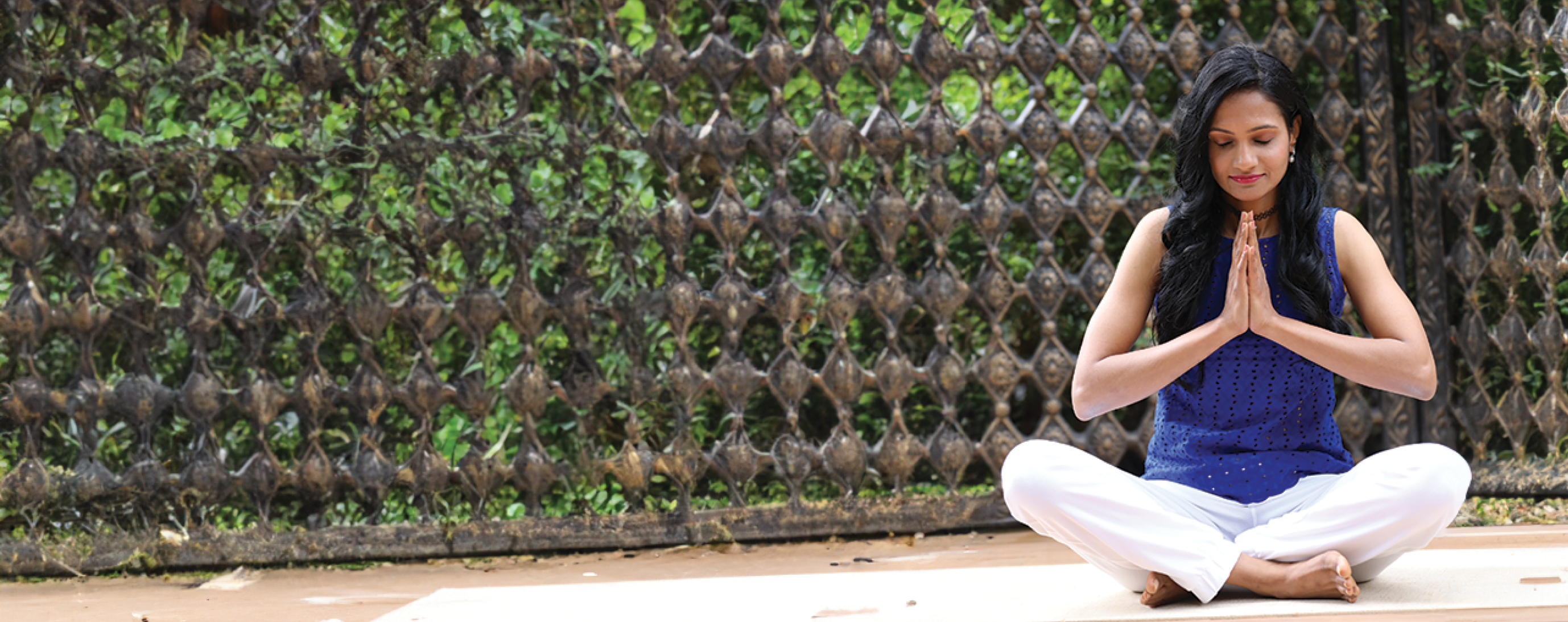Sleep Improvement Through Yoga: A Natural Way to Restful Nights
Relaxing Yoga Techniques to Calm the Mind & Promote Deep, Restful Sleep


Sleep is one of the most essential pillars of health, yet it is often the most overlooked. In our modern, fast-paced world, insomnia, disrupted sleep, and poor sleep quality have become increasingly common. Whether it’s work-related stress, hormonal imbalances, anxiety, or lifestyle choices, many people struggle to get the restorative rest they need.
At Trimuk Yoga, led by Radhika Bargava, India Excellence Award 2024 winner and certified health & nutrition coach, we approach sleep not as a problem to be fixed with pills, but as a natural rhythm to be restored through mindful movement, breathwork, and mental stillness. In this blog, we will explore how yoga supports sleep improvement and offer practical tools you can begin using today.
Before diving into solutions, it’s crucial to understand why quality sleep is vital:
Chronic sleep deprivation is linked to:
Restful sleep isn't a luxury; it’s a foundation of good health.

Yoga provides a holistic approach to improving sleep by working on multiple layers:
Practicing yoga activates the parasympathetic nervous system (rest-and-digest), which reduces cortisol levels and prepares the body for deep sleep.
Breathwork (pranayama) helps slow down the heart rate, calms the mind, and reduces overthinking—a common cause of insomnia.
Gentle yoga and relaxation techniques stimulate the pineal gland, which helps regulate melatonin, the hormone responsible for sleep cycles.
Mindful movement and meditation have been shown to reduce anxiety, a major contributor to sleep disorders.
Tightness in the shoulders, neck, and hips can prevent full relaxation. Yoga stretches relieve physical tension, allowing the body to fully rest.

🛑 Hold each pose for 3–5 minutes. Use props like pillows and blankets to enhance comfort.

Balances both hemispheres of the brain and calms the mind.
Promotes internal focus and reduces mental chatter.
Inhale for 4 counts, hold for 7, exhale for 8.
🛑 Practice breathwork for 5–10 minutes before bed.

Meditation enhances sleep by quieting the mind, reducing reactivity, and preparing the brain for rest.
🛑 Even 10 minutes a night can make a noticeable difference.
Yoga works best when combined with healthy lifestyle choices:
✅ Limit screen time at night – Blue light affects melatonin production.
✅ Avoid caffeine after 2 PM – Stimulants can linger and delay sleep.
✅ Keep a consistent sleep schedule – Go to bed and wake up at the same time.
✅ Create a calming night ritual – Herbal teas, journaling, and candlelight can signal the body to wind down.
✅ Keep your bedroom cool, dark, and quiet – A sleep-friendly environment is key.
At Trimuk Yoga, we understand that every woman’s journey with sleep is unique. Whether you’re a busy professional, a new mother, or navigating hormonal changes, we offer:
Radhika Bargava, with her deep understanding of Hatha Flow, Ashtanga Vinyasa Yoga, and holistic health coaching, tailors sessions to restore your body’s natural rhythm and support long-term sleep improvement.
If you're struggling with sleep, know that you're not alone—and more importantly, there is a solution that doesn’t come in a pill bottle. Yoga offers a gentle yet powerful way to reconnect with your body’s natural ability to rest and recover. Through mindful movement, conscious breathing, and intentional stillness, you can reclaim your nights and wake up refreshed.
Start your journey with Trimuk Yoga today and experience the difference—restorative sleep, mental clarity, and natural balance.
Sleep well, live well—naturally. Don’t wait—your better nights begin now.

Gentle, restorative poses are ideal for calming the mind and body before bed. At Trimuk Yoga, we recommend:
These poses signal your body to transition from activity to relaxation—helping you fall asleep faster and more peacefully.
Yes, absolutely. Yoga is one of the most natural and effective ways to improve sleep quality and fight insomnia. It works by:
At Trimuk Yoga, we’ve seen clients experience significant sleep improvements by integrating yoga, breathwork, and mindfulness into their nightly routines.
Ideally, you should do relaxing yoga in the evening, about 1–2 hours before bedtime. This gives your body enough time to wind down while avoiding overstimulation.
You can also:
We tailor time-sensitive routines at Trimuk Yoga to suit your daily schedule and unique sleep needs.
Yes, doing gentle bedtime yoga in your bed is perfectly okay—and even encouraged! Soft stretches like:
…can be deeply soothing and effective when done with awareness and comfort. Just make sure your movements are slow, supported, and intentional.
Definitely. Nighttime anxiety and racing thoughts are common sleep disruptors. Yoga addresses both by:
Techniques like 4-7-8 breathing, Yoga Nidra, and alternate nostril breathing (Nadi Shodhana) are especially helpful. At Trimuk Yoga, we offer guided sessions to gently release mental tension and ease you into restful sleep.
